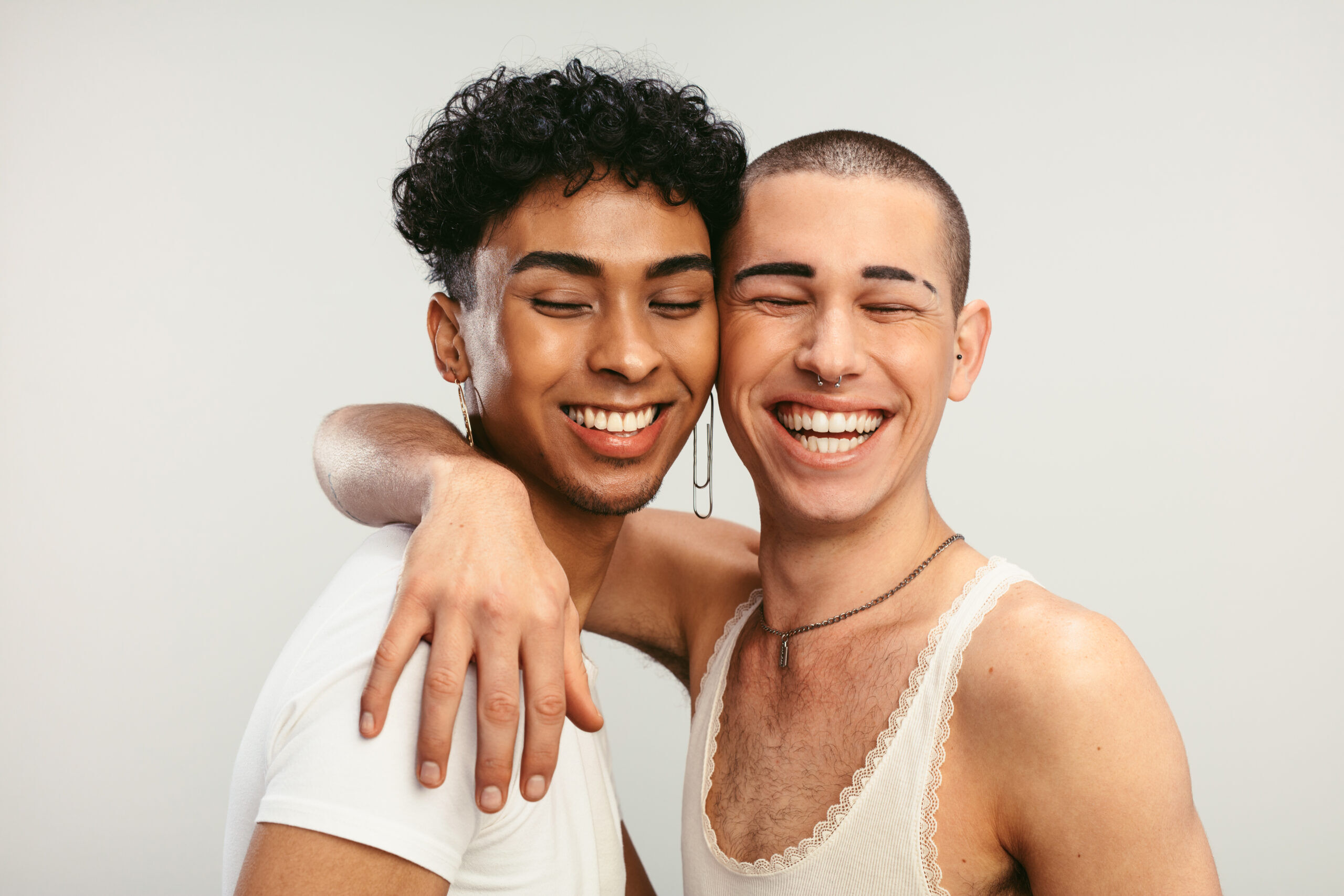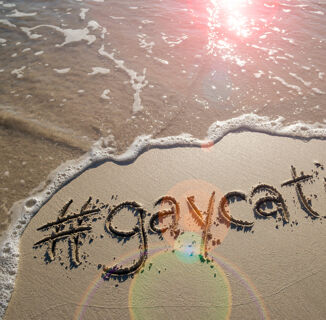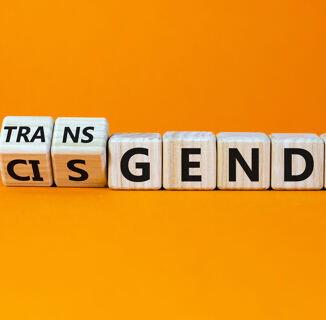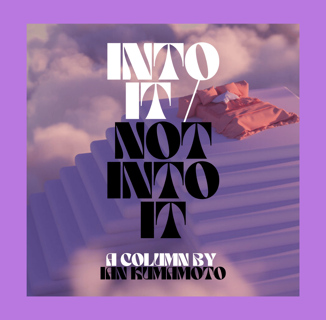For me, this was a summer of exes. At first, because I got broken up with; later because I turned to my best friend for comfort, who is, naturally, one of my exes.
Needless to say, the past three months have been an emotional shitstorm. While thinking deeply about love and the ways I’ve been taught how to love, I’ve been struggling to separate the romantic from the platonic, as well as understanding the difference between sexual intimacy versus intimacy that comes from a deep desire for a chosen family. While it doesn’t seem like my most recent ex has any real interest in being friends with me, my ex before that has shown me that real love is unconditional and doesn’t have to be tied to a romance. At the end of the day, nobody taught us how to love, so we’re really figuring it out on our own.
What I’m currently going through — finding comfort after a breakup with someone I’m broken up with — is probably not that unique; Queer people are on the whole more likely to stay friends with their exes than straight people are. There are several good reasons for this, including our nuanced understanding of love and the fact that we run in tighter circles, so we can’t afford to alienate everyone who we don’t end up marrying. But the complicated feelings I’ve been having in recent months have also made me wonder: is it always healthy to stay friends with our exes, or are we just opening ourselves up for more heartache in the long run?
As per usual, I needed to ask some experts. In order to understand why many of us end up being friends with our exes, it’s important to understand why so many of our relationships don’t end up working out. This isn’t just shade — some studies have actually found that gay couples are more likely to split up than straight couples are.
Dario van der Kraken is a gay dating relationship coach and he tells me that, like so many of us, he had a terrible time dating in his 20s. He was constantly insecure and hated the way that he looked. His self-image issues got so bad that he wasn’t able to reach an orgasm during sex.
“I was a prisoner of all my twisted beliefs about how unlovable I was,” van der Kraken said. “So you’re looking for clues that people that you might be dating don’t love you and you just end up breaking up with them or they break up with you just because of the story that you built in your head about yourself.”
The truth is that many queer men experienced some messaging that convinced us we were unworthy of love. To have a healthy relationship as a queer man in this society takes a lot of healing, a lot of therapy, and a lot of going against what our culture tells us what we deserve. I think that on some fundamental level, we understand this, and we tend to give our exes a little more grace. Most times, it’s not like they’re jumping from loving relationship to loving relationship: A lot of us genuinely don’t know how to have healthy partnerships. So just because a romantic relationship didn’t work out doesn’t mean that our ex was an evil person.
Decisiveness and space, I think, are really helpful for those who want to have that friendship with their exes.
Nathan Serrato
But while many of us can accept that queer people are more likely to stay friends with their exes, I’ve definitely met queer people who stay friends with their exes when they’d probably fare better cutting them off because of cheating, verbal abuse, or other forms of mistreatment. Nathan Serrato, another queer relationship coach, told me that when you’re considering whether or not it’s worth fostering a friendship with an ex, it’s best to keep it simple.
“If it’s a relationship you value in your life, keep it. If it hurts you more than it adds value, then stay away from it,” Serrato said. “At the end of the day, both parties have to be willing and ready to have that friendship.”
Serrato says that if you’re not sure whether or not you and your ex are going to end up as friends, you should give it some time and distance. If you got out of a relationship relatively recently, emotions are probably still running high and it might be too soon to be able to tell if it’s something you want.
“Decisiveness is really important to have. Like, you’re either friends or you’re not,” Serrato tells me. “With my ex, we made it very clear we’re not going to be romantic partners, but that we wanted to be friends. Decisiveness and space, I think, are really helpful for those who want to have that friendship with their exes.”
I was with Ashton for two and a half years, and we broke up two and a half years ago; in many ways, he was my first real, healthy, queer relationship. I would argue that we’ve gotten closer in the past three months than we ever were during the time we were dating. I think it’s because we have fewer expectations of each other and are able to fully understand and appreciate each other with more clarity. The hurt that we once caused each other makes more sense now: It’s not that we didn’t love each other, but that we were simply perpetuating harmful patterns and projecting our own insecurities throughout our relationship.
When I asked Ashton what he would tell other queer people who are rekindling a friendship with their ex, he told me that showing up authentically has been important for him. “For me, it was just, ‘I’m going to show up for Ian in the way that he needs me to show up for him and I’m going to love him regardless,’ so there was no ulterior motive,” he tells me. “If you can operate from that point of view, then I think you can have a friendship with your ex.”
I am so grateful for all my exes, but even more grateful for the exes that I still share deep and genuine friendship with. To me, it’s evidence of our capacity to love without conditions, and evidence that in the queer community, romantic love doesn’t have to be more important than friendship. Still, it’s also important that we’re honest with ourselves about whether or not we’re ready to be friends with our exes. If it feels too complicated or emotional, it’s absolutely ok to not want to be friends with your ex.
Overall, I’m definitely into being friends with an ex, as long as there is effort put on both sides. Our exes aren’t just exes: They’re people who know us on a level that most people never will, and that can be a gift if we choose to see it that way.♦
Related:
Are Kathryn Hahn and Aubrey Plaza Playing Exes in ‘WandaVision’ Spinoff?
Rumor has it that “WandaVision” villain Agatha Harkness, played by Kathryn Hahn, will get the “bicon” treatment in her own spinoff.
Don't forget to share:
Help make sure LGBTQ+ stories are being told...
We can't rely on mainstream media to tell our stories. That's why we don't lock our articles behind a paywall. Will you support our mission with a contribution today?
Cancel anytime · Proudly LGBTQ+ owned and operated
Read More in INTO It / Not INTO It
The Latest on INTO
Subscribe to get a twice-weekly dose of queer news, updates, and insights from the INTO team.
in Your Inbox














